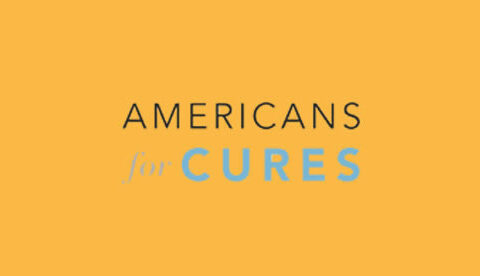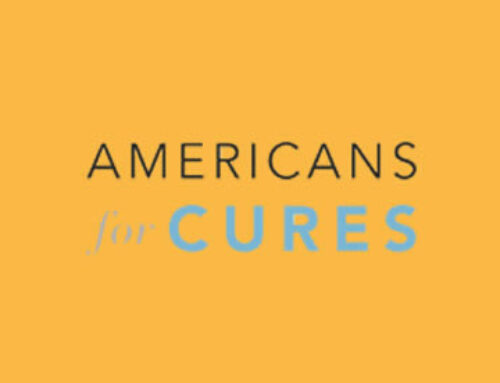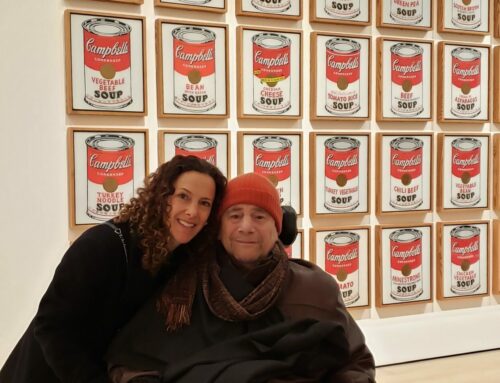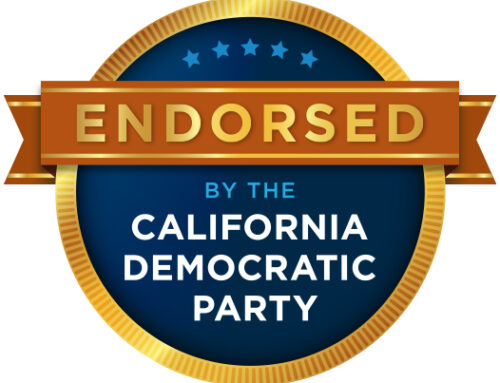PALO ALTO, CA – Today, United States Senator Edward Markey (D-MA)announced his endorsement of Proposition 14 – the California Stem Cell Research, Treatments and Cures Initiative of 2020. Senator Markey has been a longtime advocate and champion for increased research funding for chronic diseases, conditions and illnesses including stem cell science.
Over more than four decades in Congress, Senator Markey has been a major force in increasing the NIH research budget. He is the Founder and Co-Chair of the Bipartisan Alzheimer’s Task Force and the Senate and Congressional Cystic Fibrosis (CF) Caucus. He is also a member of several other Congressional Caucuses including for Biomedical Research, Parkinson’s Disease, and Vision. He wrote legislation that requires the National Institutes of Health (NIH) to develop a national plan to find the cure for Alzheimer’s Disease by 2025. Stem cell research could contribute to this mission. Senator Markey has been recognized for his outstanding leadership with the Alzheimer’s Association Humanitarian Award in 2015, the Association of Independent Research Institutes Public Service Award in 2013 and many others.
Senator Markey joins an important coalition of more than 90 patient and research advocacy organizations, hundreds of the world’s top scientists and physicians, leading business organizations, Nobel Prize winners, Governor Gavin Newsom, U.S. Senator Dianne Feinstein, Lt. Governor Eleni Kounalakis, CA Secretary of State Alex Padilla, dozens of California’s state and local elected officials, the California Democratic Party and the University of California Board of Regents in supporting Proposition 14 to strengthen stem cell research and therapy development.
Without Proposition 14, vital medical discoveries and clinical trials that are currently saving and improving lives will come to a halt. Proposition 14 comes at a critical time. More than 90 U.S. Republican Senators and Congressional Representatives are calling on President Trump to halt embryonic stem cell research at the federal level, which he could make a reality with a simple Executive Order. Of those 90 federal elected officials, 22 are U.S. Senators – a delegation large enough to potentially block stem cell funding irrespective of who is in the White House in 2021, leaving California as the only world class sponsor of a broad spectrum of stem cell research and therapies for life threatening diseases affecting families across America.
There are numerous clinical trials underway in California, Massachusetts, and other states that would not be eligible to receive federal funding if this ban were to happen. Regardless, federal funding for stem cell research currently is limited and inconsistent. Based on all publicly available information thoroughly reviewed by Proposition 14’s scientific advisors, the National Institutes of Health (NIH) has yet to fund a single clinical trial using human embryonic stem cell-derived cells – even after the Obama administration repealed the Bush-era regulations restricting stem cell research.
“For decades, I have fought for increased research funding for the discovery of
treatments and cures for chronic diseases including Alzheimer’s, Parkinson’s, diabetes, cancer,
blindness, cystic fibrosis, and more,” said United States Senator, Edward Markey. “The
important breakthroughs that have emerged from this innovative stem cell research program
will benefit patients in my state and across the country, while helping to eliminate the suffering
of patients and families dealing with chronic conditions and diseases. Proposition 14 will
provide significant new resources to continue the program’s critical work and make more
medical discoveries that will benefit people across America.”
A USC study of the first Initiative’s economic benefits for California demonstrates Proposition 14 will provide a strong economic and jobs stimulus and should be leveraged by private matching funds – it is exactly the type of long-term investment we should make now to rebuild our economy. If the recent study results are adjusted for the size of the new Initiative, economic benefits of Proposition 14 would generate an estimated $20 billion in increased economic activity in California, $1.2 billion in additional state and local tax revenues, and more than 100,000 jobs at every level. Proposition 14 will not require any State General Fund payments until year 6 (2026), and it will provide economic benefits that outweigh the cost of the bonds until 2030. In this way, California can be a model for other states for economic stimulus, especially in the midst of the current pandemic.
In 2004, voters overwhelmingly approved Proposition 71 with nearly 60% of the vote — establishing the California Institute for Regenerative Medicine (CIRM), to fund stem cell research and therapy development throughout the state to advance lifesaving and life-changing medical research and treatments. Proposition 14 will renew funding for CIRM to continue the advancement of stem cell research, treatments and cures that could save or improve the lives of millions living with chronic diseases and conditions, like Alzheimer’s, cancer, diabetes, heart disease, stroke and even COVID-19.
CIRM’s program has already saved and improved lives through the advancement of more than 90 clinical trials, two FDA-approved cancer treatments, 9 new treatments that have earned FDA fast-track status with FDA Breakthrough Therapy Designations or Regenerative Medicine Advanced Therapy Designations, and nearly 3,000 published medical discoveries. While the majority of these clinical trials are ongoing, a few examples of the remarkable preliminary, clinical trial results to date include: cancer patients who had exhausted all other therapies, but are now in remission; Type 1 Diabetics have begun producing insulin; quadriplegics are regaining upper body function; and blind patients are regaining their sight.
CIRM has the infrastructure and intellectual capital to advance clinical trials and medical discoveries through to widely available, FDA-approved treatments that will benefit not only Californians, but the entire nation. While the federal government primarily funds early research, private funders almost exclusively invest in late-stage clinical trials where they can profit faster at lower financial risk – leaving a glaring funding gap for early and intermediate clinical trials, that often ends promising research. CIRM bridges this critical gap, ensuring that potential life-changing cures are not left stranded.
If Californians fail to pass Proposition 14, hundreds of medical discoveries that have contributed to the current translational pipeline may not be able to progress through clinical trials, delaying potential lifesaving and life-changing treatments for years, or decades. Proposition 14 is a small investment to potentially save millions of lives and tens of billions of dollars in healthcare costs in the coming decades.
To learn more about Proposition 14, please visit YESon14.com.





